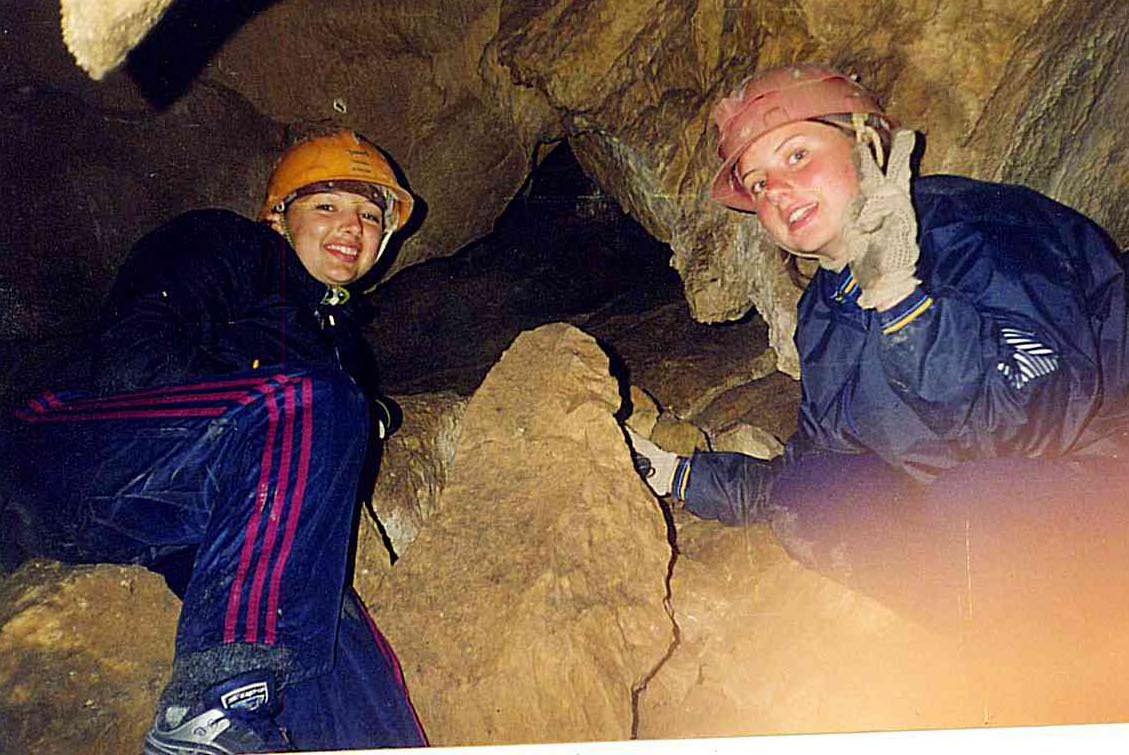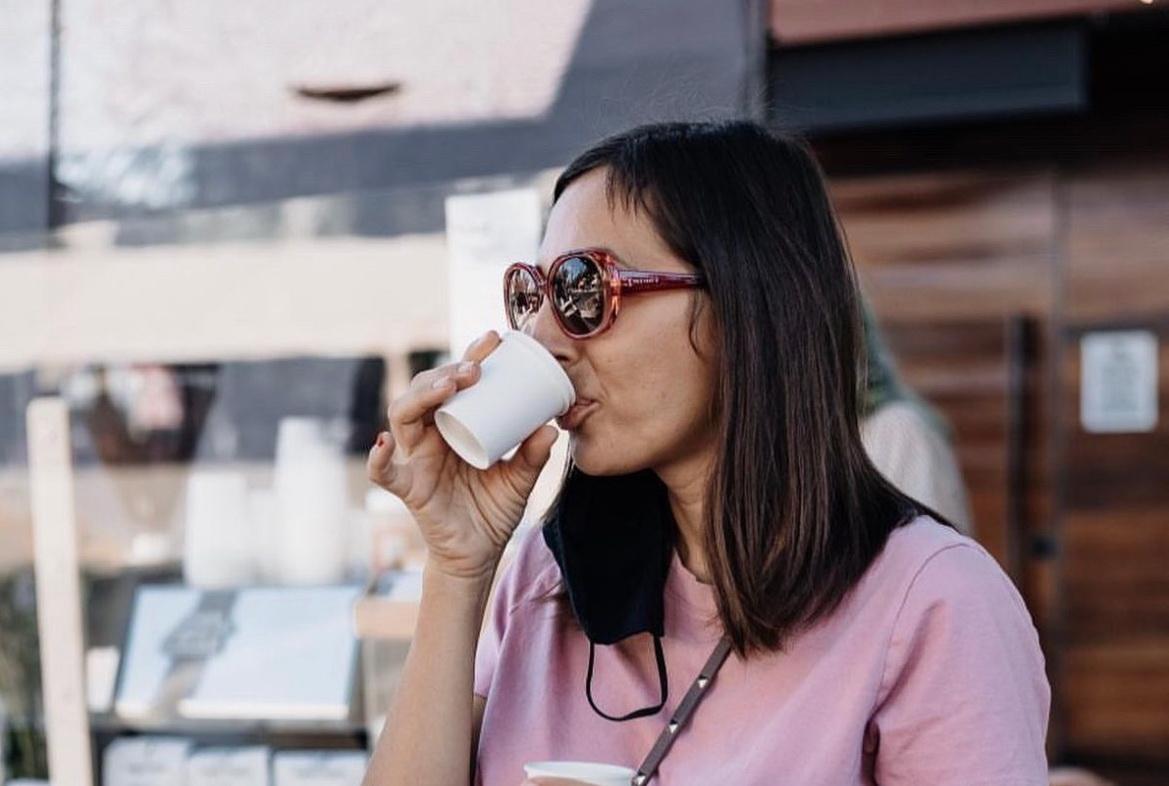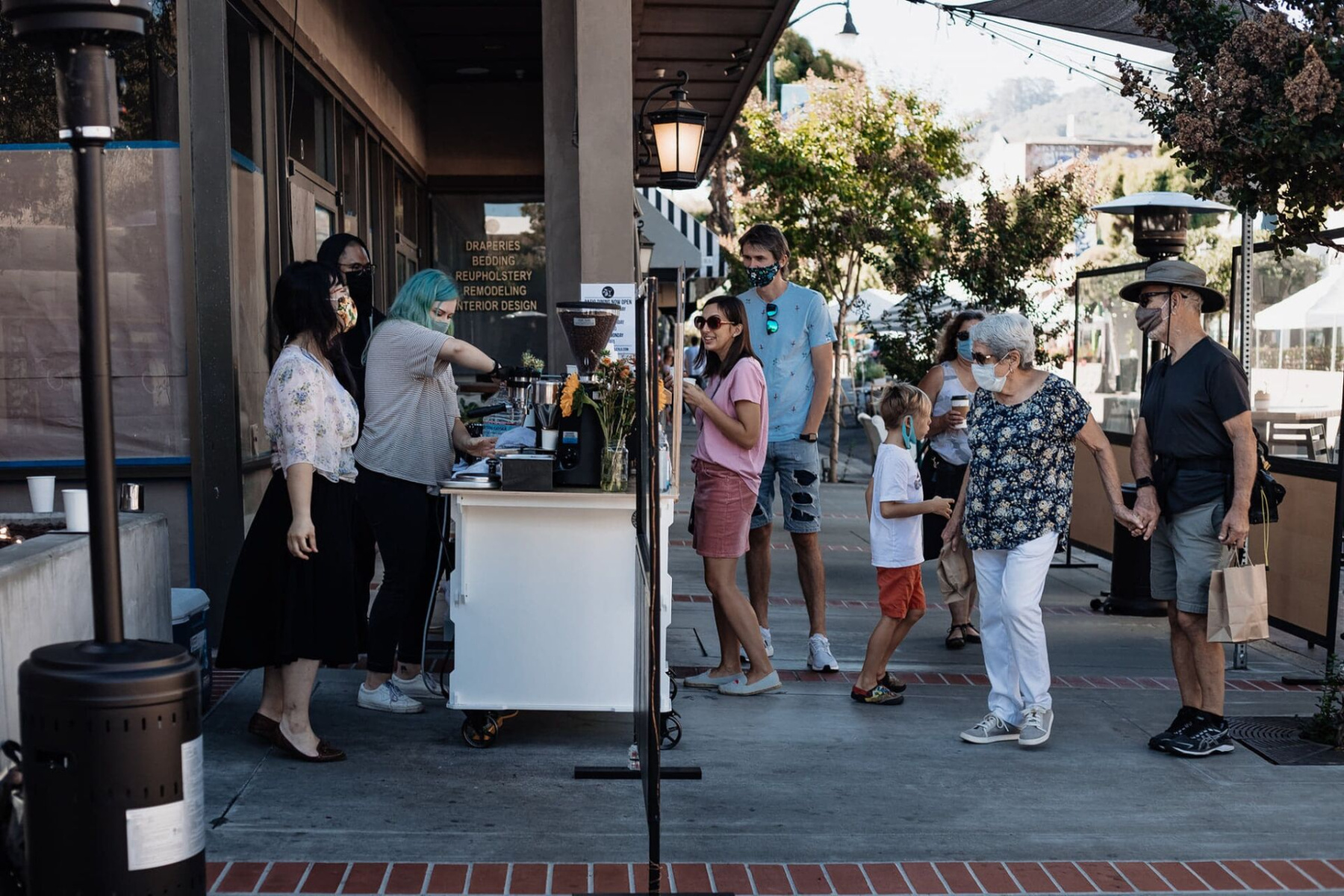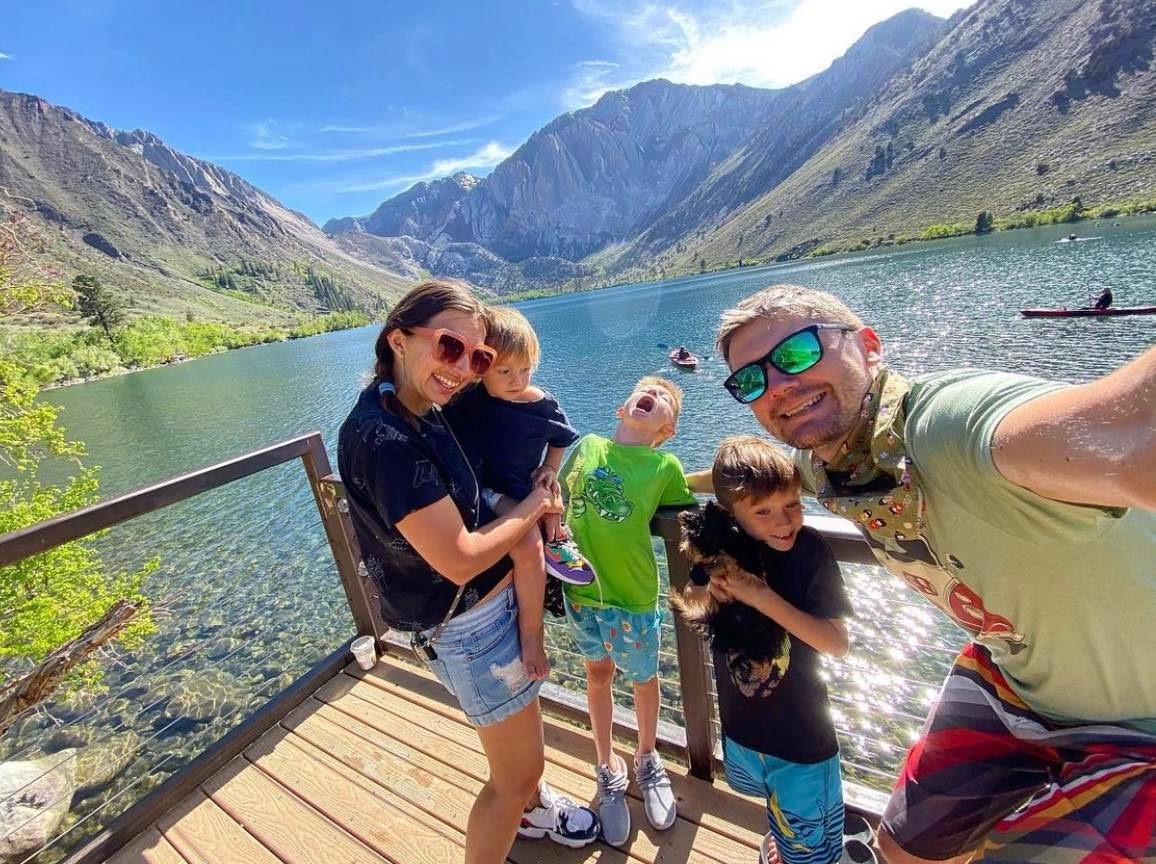Studentship can change one's course of life, and the sense of belonging to a certain university is something to be proud of. Regardless of where graduates of Tomsk State University find themselves, TSU still remains their alma mater. Welcome to the project TSU Graduates, where we will be sharing stories about former students who connected their lives with IT and entrepreneurship.
TSU graduate Yuliya Kolchanova is about to open the fourth coffee shop under her brand 1 Oz Coffee in California. Former residents of Tomsk in Silicon Valley consider her to be a local small business star. How geography can help in the coffee business, how much it costs to start a business in the heart of American IT, and why Yuliya keeps coming back to Tomsk—all of this in the special project by Tomsk.ru.
Pioneers of Digital Geography
I was born in a small town not far from Tomsk, Anzhero-Sudzhensk. The nearest cities with decent universities were Kemerovo and Tomsk. Getting along with people was always easy for me, so I considered getting a psychology major. However...my friend's older sister enrolled in the TSU Faculty of Geology and Geography: Her enthusiasm about working in tourism was very infectious, so I decided to do as she did.
“We lived in the dormitory building No. 7, not too far from the stadium Burevestnik. Each day we would go there at least once to appreciate the natural scenery nearby and boost our energy. This truly was our place of power, as some say nowadays. It is amazing how in Tomsk nature is closely intertwined with the city’s landscapes. Frankly, the city itself is amazing: It is small, yet filled with so many things: good infrastructure, many cafes and restaurants, universities, parks.”
Our first out-of-campus activity was in the Republic of Khakassia, when our mentor that we all admired—Vadim V. Khromykh—told us about a new field of study at our faculty called the landscape study. It was the beginning of the new millennium, and back then pretty much everyone in Tomsk wanted to work in the oil industry, many people studying geology at our faculty in particular aimed for that field. To me, landscape study seemed as an opportunity that is promising, yet not as demanding as geology. The study of various natural zones, landscapes, and soils helps to find sources of raw materials among other things. It clicked with me, and I changed my speciality. Then I focused on electronic mapping: We helped our professors digitize maps, compare them to actual terrain, and create new ones—mainly for Tomsk and the surrounding areas. It really made us feel like pioneers: The term “digital maps” had been coined only recently—Google Maps, for instance, appeared only in 2005 and at first looked like an ordinary map.

“What made my time at the Faculty of Geology and Geography special were the out-of-campus activities. Three weeks in a tent in a good company, surrounded by beautiful sights! Our second session was in the Altai Mountains, in the Ukok Plateau bordering Kazakhstan, Mongolia, and China. We lived right near the Russian border, in a lakeside area. We would study nature, landscapes, and climate, and check glaciers; in the evenings, we would sing songs and play guitar. All of our mentors were glowing with enthusiasm. And many of them showed a great deal of patriotism, which was reflected in their vernacular: Some literally called their country Mother Russia! I still keep in touch with many of them on Instagram.”
Science and the Art of Coffee
I had more free time during the final years of study, so I considered getting a part-time job. I somehow overheard that a small coffee shop called Boulanger was recruiting staff. I went there and instantly connected with the director Lyudmila V. Leonova. It is thanks to her that I am head over heels for coffee. I never thought coffee can be so nuanced, so tasty, requiring the work of a true artisan! As a geographer, I found it especially interesting to decipher the influence of various climatic factors on coffee's taste. It is important whether coffee beans were harvested on the sunny or shady slope of a volcano, in South America, Asia, or Africa, in dry or humid climate, high in the mountains or in the foothills. Before working in Boulanger, I thought that coffee is a simple morning ritual: brew it, mix it, done. Now it is a completely new world to me.
I got so inspired that I started preparing for a barista championship—I wanted to become better in this field. But it just so happened that my husband, who worked as a programmer in a Tomsk branch of the American company F5 Networks, was offered a relocation to the US. It was 2008, two years after my graduation, but I had little to no experience working in my field—there were no interesting job opportunities. I thought in the US I would definitely find employment with my major! I hoped that, once in the US, I would be employed by Google to work on geoinformational systems for Google Maps.
There was only one problem—I lacked proficiency in the English language since I had been studying German my whole life. So I thought I might go to college, where I would take English and Geography classes (the latter I knew well, meaning that learning the language would be so much easier!). One and a half years passed, and I realized that I missed good coffee! As perplexing as it may sound, there was none in Silicon Valley. They only had Starbucks and its analogs, which did not satisfy a connoisseur's tastes. All in all, this whole time I have been living without coffee and gradually coming to terms with the fact that I had to do something on my own. This is how I went to college to study business.
“In the US, coffee shops are at every corner: it is a ritual for Americans to buy coffee every morning. Unfortunately, most coffee shops offer coffee that is more of a cocktail consisting of sweet syrups, large amounts of milk, and roasted coffee (the latter gives at least some semblance of coffee beans' taste). After a year and a half, we found only one Italian place with good coffee, and it was in Palo Alto, where Stanford University is located.”
I decided that first I needed to learn the ins and outs of how local coffee businesses work, so I got a job in that exact place in Palo Alto. Generally speaking, it was similar to working in a Russian coffee parlor except for one noteworthy cultural difference: When batches of goods came in, female workers would carry the heavy boxes themselves, while male employees would casually talk with the customers. At first, it did baffle me, back in the home country men seemed to be more courteous to women.
That being said, I had been working in the coffee shop and simultaneously looking for a place for my own business. Silicon Valley is a densely populated area, where the world-leading IT companies have their headquarters, hence the huge prices on commercial real estate. Running a small business is next to impossible, and for us it was critical to find a location with high foot traffic at a reasonable price; after all, in the US coffee is a low-margin business. At one point we decided to compare the performance of our business with a Russian coffee franchise Doublebe: They had a profit margin of 20 to 25%, whereas we had 6 to 10%. It got me thinking, what were we doing wrong? We started talking more to consultants of all sorts, and all of them said that 6% is a great average profit margin for coffee businesses in the US!

We faced many difficulties trying to find a suitable property, hence in 2012 1 Oz Coffee launched as a catering service. We would arrive at offices or private events, install our equipment there, and prepare our delectable coffee. We received the first catering order when I was pregnant—we were expecting our first son, Roman. At the beginning, we used to receive orders by word of mouth: Our friends from local coffee shops recommended our service if one of their regular visitors needed coffee in their office.
“Our expenses at the portable bar itself, as well as licensing and all the relevant equipment, were less than $20,000. The cost of opening a coffee shop, on the other hand, was sixfold more. Red tape and excessive paperwork were also involved, but there were business associations that offered free consultations by retired businesspeople. It was also possible to get a low-interest loan, but only if your idea is feasible enough.”

One of our regular customers was a company that owned multiple office buidlings in Silicon Valley. They often called us when they were showcasing new venues to potential owners. We would install our equipment there, enabling people to walk around the venue with a cup of delicious coffee in their hands. This helped create a cozy atmosphere, which made the experience more memorable, meaning that the venue was more likely to be sold. In 2014, they purchased yet another business center in Santa Clara—it had natural-style interior design and a section with sofas and tables. They offered us the chance to purchase this section for our coffee bar. Even though there was little to no foot traffic in the area, we still decided to take the odds: The price was cheap, almost no competition in sight, the offices there were plentiful, and the area itself just had something unique to it. I was sure everything would work out. We opened in 2016, and in six months we had already gotten a steady flow of customers. On workdays, people from the surrounding offices would frequent our place, and on weekends we would serve people from all over Silicon Valley. In a year we found the perfect property in the very heart of Silicon Valley—on a street with high foot traffic in Mountain View—and opened our second coffee shop there. We put in a lot of effort to create a good public image, and now the brand 1 Oz Coffee is associated only with good, high-quality coffee.
Currently, we are working on opening our third coffee parlor—also in Santa Clara, but in an area closer to the university (the university past cannot be shaken off that easily!). In addition, we leased commercial property in Huntington Beach—a town to the south of Los Angeles—to make our dream come true and open a coffee shop overlooking the ocean...

“I met my husband at TSU. He also graduated from the Faculty of Applied Mathematics and Cybernetics, now he is a manager at Microsoft. He is a good visionary and mathematician, always helping me with calculations and diagrams, hinting at the right strategies. As for me, I am more into working with people: team building, encouraging team members, pushing the philosophy of 1 Oz Coffee... Our present team consists of 17 members, they love coffee and enjoy working with us. I am glad that the majority of them have been with me since the opening of the first coffee shop.”
Sightseeing in the Middle of Nowhere
Initially, we did not intend to move to the US; we had it good in Tomsk, although it was interesting to see how people live in a different country. Turned out, we did not notice how we spent over thirteen years there...
Back when my husband was working in the Tomsk branch of F5 Networks, the city would see the company's delegations from the US from time to time. The guests joked about our area being in the middle of nowhere, but they were always satisfied with their stay: The city is beautiful, the food is delicious, and the women are gorgeous!
Recently, we have been trying to visit Russia at least once or twice per year, and Tomsk is always in the list of places to visit. We cannot live without walking around the university grove, feeling its energy of knowledge pouring into us…
If there is one thing the city should be proud of, then it is the students and the universities' staff. Whenever I tell my American friends about Tomsk, I always emphasize: Where else can you find such a small city with six universities, with its streets comprised mainly of students and teachers? We have a friend—a nephew of Melanie Griffith and Antonio Banderas—who I used to study with in college. After talking to me for a while, he got the idea to go to Russia. Having graduated from college, he continued his studies at a university in Los Angeles: At a certain point he had a course in area studies, which implied going to the country of choice. He chose Russia. Unfortunately, he could not make it to Tomsk, but he did dedicate a whole week to travelling from Moscow to Irkutsk via the Trans-Siberian Railway during winter. He said he made some good memories there! He also specified that he had his best pasta in Irkutsk, at the Baikal lakeside.
Photos by: Yuliya Kolchanova
Original article by: Elena Tailasheva
